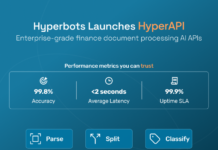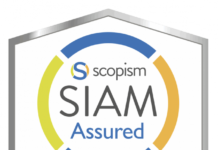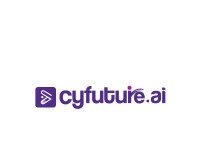From Political Theory to Product Testing: Alexander Habighorst Bridges Humanities and Tech
(Isstories Editorial):- North Charleston, South Carolina May 3, 2025 (Issuewire.com) – As artificial intelligence, cloud systems, and digital platforms become central to daily life, the tech industry must grapple with issues of fairness, accessibility, and user trust. According to Alexander Habighorst, a quality assurance professional with a background in political science and liberal arts, the tools needed to meet this moment may come from an unlikely place: the humanities.
More on Isstories:
- New Lesbian Memoir Launches Ahead of Valentine’s Day, Offering an Honest Look at Love After Heartbreak
- Curantis Solutions and WorldView Partner to Bring Faster, Clearer Workflows to Hospice and Palliative Care Teams
- Debut Fantasy Novel The Other Kind: The Rise by Yusuf Bhatti Explored.
- Bluecoin IoT Brings AI-Ready Facility Intelligence to FWM India Summit 2026
- Haris Vitalaki Presents Know No Studies: A Poetic Exploration of Freedom, Thought, and Inner Truth
“Political theory taught me how to think structurally, ethically, and systemically,” says Habighorst. “Those are the exact skills I use every day when I test software.”
With degrees in political science and liberal arts and a track record of research in political philosophy, Alexander Habighorst brings an uncommon lens to his work in software quality assurance. In his current role in the tech sector, he not only manages test plans and timelines but also advocates user-focused design and robust accessibility standards. According to Habighorst, the same critical thinking that once drove philosophical debates in the classroom now drives decisions about how digital products should behave in the real world.
“Quality assurance is not just about making sure software works, it’s about making sure it works for everyone,” Habighorst explains. “You can write code that runs perfectly, and still fail the people who need it most. That’s where ethics comes in.”
Liberal Arts Thinking, Technical Execution
According to Alexander Habighorst, many of the core competencies associated with liberal arts, reasoning, communication, and attention to nuance are directly applicable to software testing. Whether anticipating edge cases or exploring unintended consequences, the ability to imagine how different users interact with technology is critical.
“In political theory, you’re constantly evaluating systems, how power flows, where gaps exist, and who gets left out,” says Habighorst. “That mindset translates beautifully to QA. You learn to look at a product not just from the developers’ perspective, but from the perspective of marginalized or underserved users.”
This broader perspective makes Habighorst a strong advocate for digital accessibility. He believes compliance with accessibility standards isn’t a checkbox. It’s a social responsibility.
“There’s no such thing as a neutral interface,” Habighorst adds. “Every design decision reflects assumptions about who the user is. My job in QA is to challenge those assumptions and ensure the product reflects a wider human experience.”
Systems Thinking Meets Human Impact
Alexander Habighorst argues that political science uniquely prepares individuals to work within complex digital systems. Just as political theorists analyze how institutions and ideologies shape behavior, QA professionals must evaluate how different components of a digital product interact and where they might fail.
“When I run tests, I’m not just thinking about functionality in isolation,” Habighorst explains. “I’m thinking about how this feature interacts with others, how it might behave under stress, or how it could confuse or mislead someone. That’s systems thinking, and it’s straight out of my academic training.”
Beyond Bugs: QA as Ethical Infrastructure
One of Habighorst’s central ideas is that quality assurance should evolve beyond technical validation and become a site of ethical inquiry. In his view, QA professionals are the last line of defense before users engage with a product, giving them a unique opportunity to safeguard equity, privacy, and transparency.
“Technology is shaping how people work, learn, and live. If we don’t interrogate the values built into our digital tools, we risk replicating and reinforcing social injustices,” Habighorst warns. “That’s why I approach QA with the same rigor I once applied to political texts.”
Alexander Habighorst sees the future of QA as interdisciplinary, where insights from the humanities are integrated into agile processes, design reviews, and user testing strategies. He believes tech teams need professionals who can think historically, ethically, and critically about their products, not just whether they function, but whether they serve the public good.
A Call for Broader Perspectives in Tech
For recent liberal arts graduates considering careers outside academia, Alex Habighorst offers a message of encouragement: the tech world needs you.
“Don’t underestimate the value of your education,” Habighorst advises. “The ability to think clearly, write persuasively, and evaluate systems is rare, and desperately needed in tech. Especially in QA, where asking the right questions can make or break a product.”
Looking ahead, Alexander Habighorst plans to continue building a bridge between disciplines. Whether analyzing backend logic or promoting inclusive design, his approach centers on one principle: technology should work for everyone, not just the majority.
“The best technology isn’t just efficient, it’s ethical,” Habighorst concludes. “And ethics starts with asking better questions. That’s what political theory taught me. That’s what quality assurance allows me to do.”
To learn more visit: https://alexhabighorst.com/
This article was originally published by IssueWire. Read the original article here.





















